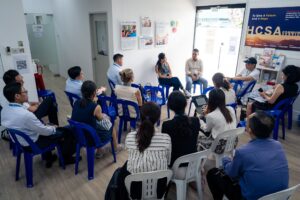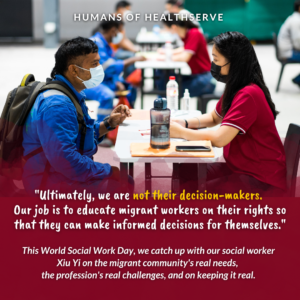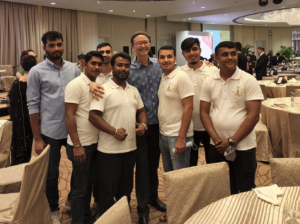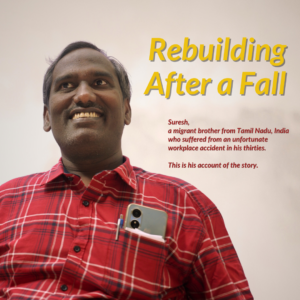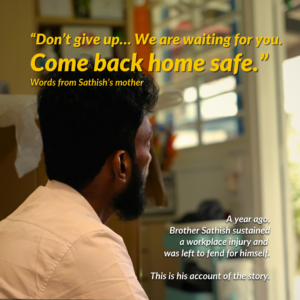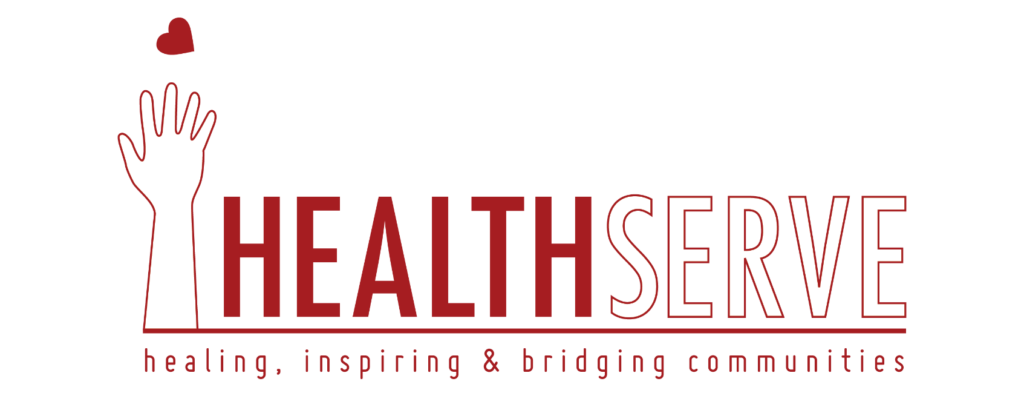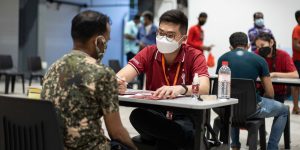
Celine joined HealthServe as a Casework Intern in December 2021, intending to spend her semester break in a meaningful way.
As a second-year student at Yale-NUS College, she first learned about HealthServe while working on a policy research project about migrant workers’ access to mental health resources during the COVID-19 pandemic.
Driven by a desire to uncover the needs and challenges of the migrant community on the ground, Celine began to learn more about the way non-profit organisations like HealthServe strive to meet the needs of migrant workers here in Singapore.
“I wanted to learn from conversations with migrant workers instead of just reading stories about them.”
Growing up in Beijing, Celine had had little interaction with migrant workers (with most workers hailing from rural areas of the country), apart from her domestic helper who raised her for 12 years back in China.
While on the job, Celine picked up essential social work skills such as how to assess intakes and how to administer social services. Her heart to serve and a firm grasp of Mandarin helped ease her into her role as she started supporting Chinese-speaking migrant brothers who approached HealthServe for assistance via our 24-hour crisis helpline.
As a beginner in this field, Celine shared that she initially found it challenging to navigate between her desire to help as much as she could and being realistic about possible outcomes of a worker’s case. She also learned that often, instead of problem-solving for migrant workers undergoing complex work injury cases or salary claims, the role HealthServe plays is to be a pillar of support and to journey with them.
“HealthServe views migrant workers as clients who are empowered to take on certain challenges on their own.”
A typical day at work involves following up with migrant workers who were being supported by the casework team, then administering the Geylang Food Project’s lunch requests.
Typically, these migrant brothers are on Special Passes, which prohibit them from working in Singapore. They may be awaiting the outcome of a work injury case or a salary claim, and need to remain in Singapore until their cases are resolved.
Gathering requests for their groceries and daily needs, Celine would also accompany caseworkers on regular dormitory visits to help distribute these essentials. In addition, Celine would conduct intakes for new clients who visit HealthServe’s Geylang office by first understanding their story then exploring how HealthServe could best support them with their most pressing needs.
Apart from being behind the desk, Celine would also support Outreach & Engagement events at regular outings such as walks at Gardens by the Bay and health screening initiatives at Recreation Centres. These gave her the opportunity to interact with migrant brothers in more calm and relaxed settings.

Celine’s interaction with Mohammad*, an injured migrant worker, stayed with her after her days at HealthServe. She first met him at a casework team visit to his dormitory where he offered to collect grocery packs for his friends who were away or unable to come down at the moment.
Celine felt touched that while Mohammad had his own injury, he was extremely thoughtful towards his friends who were in a similar situation as him.
Later, while she was arranging for Mohammad to attend an occupational therapy session at our Geylang clinic, she noted that he lived far away in Tuas, on the other end of the island. She offered to call a taxi to pick him up but Mohammad insisted on taking the bus, and making his own transport arrangements to go back afterwards.
“I was impressed by how Mohammad was able to empower himself even though he was in a relatively vulnerable position.”
The biggest takeaway for Celine was her new understanding not only of the challenges migrant workers face and how NGOs such as HealthServe are positioned to support them, but also of their tenacity and resilience.
When asked for a piece of advice for future interns, Celine shared that she would encourage them to try and put themselves in the shoes of migrant workers when listening to their stories, and imagine how they themselves would communicate with others if English was not their first language.
She believes it is little steps such as these which help foster deeper empathy and understanding when doing social work.
Celine hopes that in the future, more schools and institutions would include in their curriculum more opportunities for students to learn and interact with the migrant worker community from a young age, which she believes will help them better appreciate our migrant community who helped build Singapore.
“Once people have conversations with migrant workers, they will realise that they are just like any other person who is here to work. They have their own stories.”
If you would like to join us as an intern, visit healthserve.org.sg/internship-opportunities/.
